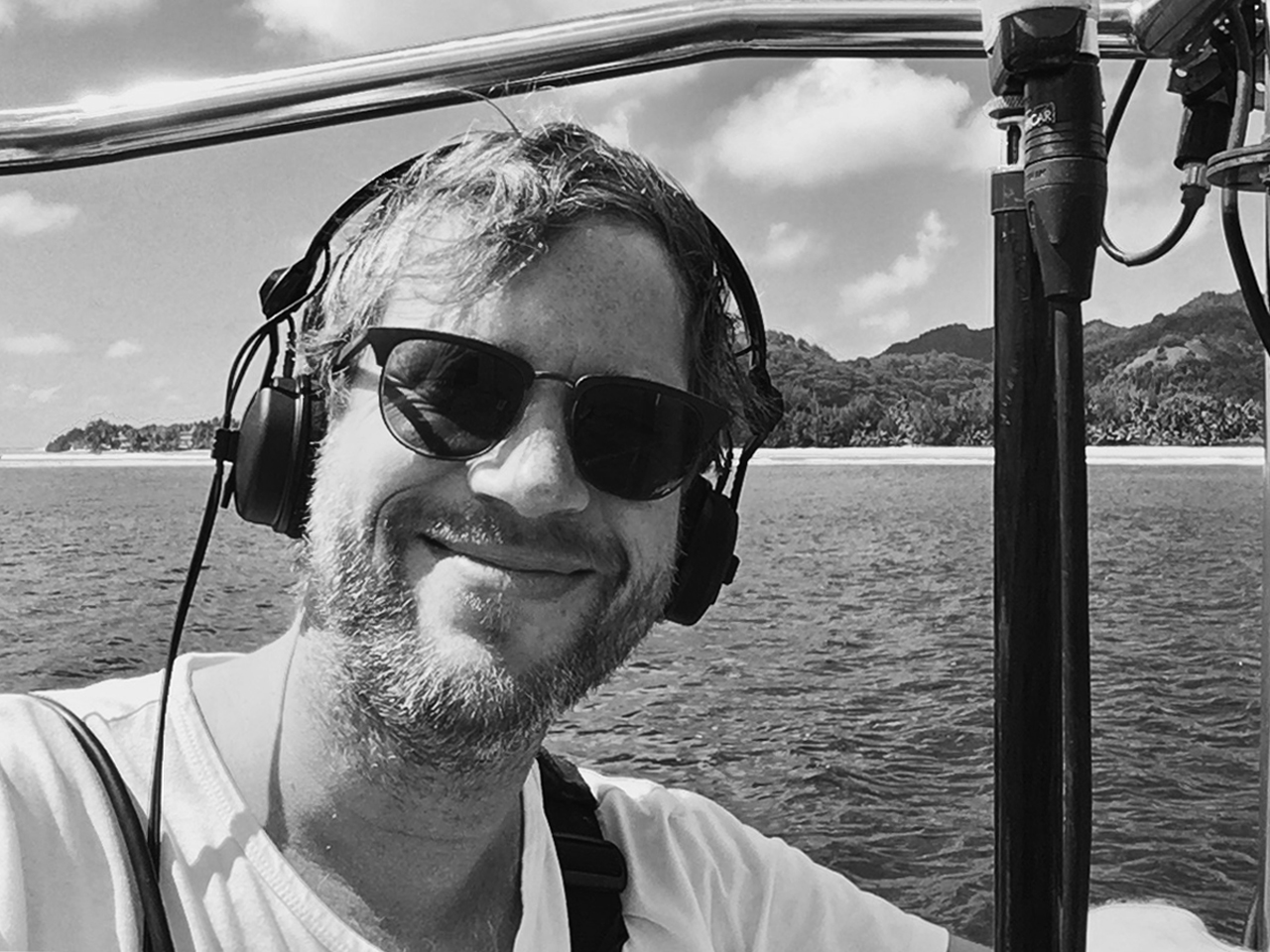at one table
The Film
GENRE: documentary
EXTRAS: short spin-off‘s / making-of / trailer
LANGUAGE: english / various languages + english subtitles
EXPOSURE: theatrical release / VOD
TEAM: Sylvia Borges (producer©, director, DOP), Moritz Minhöfer (producer©, recording mixer, sounddesigner) + changing DOP‘s
We are two filmmakers who want to travel through all 28 EU-countries with a van. In each country we will look for unique protagonists, who are willing to tell us their stories. We want to show the many unknown worlds within our familiar world, challenge ourselves and reveal the beauty of Europe‘s diversity.
We invite all protagonists to eat and talk with us at our round table. In the beginning it will be a flawless, wooden table. However, after each encounter we will ask our guests to cut a mark in the wood, like their names or a sign that means something to them. At the end of our journey this table will be a witness of all the beautiful, sad, confusing and funny encounters that took place at our table.
We’ll either invite one person or two people, who live close to each other and yet in opposite worlds. The questions we‘ll ask them are always the same: In the middle of the table is a stack of cards. With each card they‘ll pick up, we’ll ask for ‘a first time’ in the lives of our guests. Sometimes the questions seem banal and sometimes existential.
The listener may ask questions, but it‘s important not to change the subject or use someone else’s story as springboard for one’s own. After the story is finished the counterpart may answer the same question or take a new card from the stack
Of course they‘re free to skip questions. Nobody should feel under pressure and nobody has to answer all the questions. All we want is to give untold stories a safe place to be told.
The last card is a special card. With this card we allow our guests to challenge us: What first time should the filmmakers experience on their journey? In order to learn something new, we need to leave our comfort zone and go beyond fear.
It‘s possible to use our own first-timeexperiences either for a sequence in the film or for a making-of.
This movie is not supposed to have one coherent look & feel. It’s more like a collage - as colorful, eclectic, surprising and disturbing as Europe itself - held together by Sylvia’s essayistic point of view as a narrator and by the chronological arc. We will edit the selected first-time-stories in such a way, that it seems like one European life, told by many different voices from different worlds within Europe. This film is our attempt to explore the familiar, to extract pure experiences and to give us, as Europeans, one identity - it‘s a dissonant identity, but an identity.
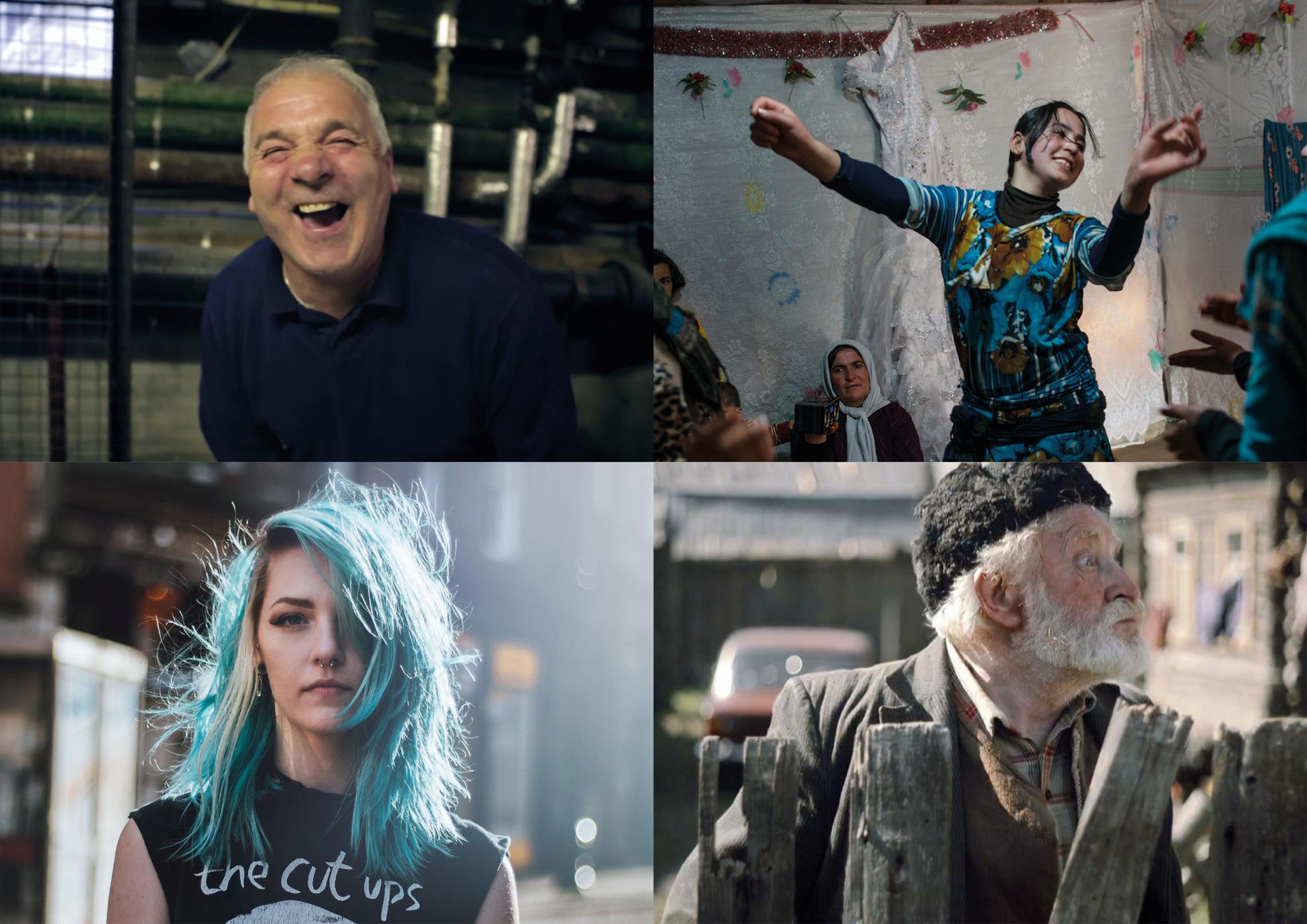
THE ‘TERRA INCOGNITA‘
STARTS RIGHT BEHIND
THE NEXT DOOR
the approach
In the recent years we’ve travelled around the world and worked for commercial film productions worldwide. We’ve shot a lot of stuff with happy people, big smiles, shiny cars, waving arms, flying hair, meaningless drone shots and uncountable „magic moments“ - whatever clients mean when they say that!?
We had fun, we learned a lot about the technical side of filmmaking, made good money and lived on a high standard. But at the same time we missed to get in touch with the world outside of our comfort zone and to share genuine stories by real people.
One day Moritz and I talked about how big and uncharted the world seemed when we were children. And today? We are aware of all the global issues, but our world has actually become smaller. We do what we do best, surround ourself with people the same age, who share the same cultural background, who vote like we do and together - in a kind of peaceful consent - we watch the world from our balconies. Inside our safe bubble we complain about the emerging protectionism and nationalism in Europe und agree each other in our open minded point of view… but maybe we are part of the problem!?
As children of the post-war-generation we didn’t have the urgent need to fight against fascistic networks, denunciatory systems, misogyny and conservatism. We took the freedom and the friendship of the European nations as a beautiful gift. By now we know: it is a gift that can be taken away from us.
It’s time to take responsibility for what we love - not only by protesting against what separates us but by bringing Europe back at one table.
This film is not a political statement though our motivation is very political. It’s our contribution for an open society in Europe and hopefully an impulse for other people to leave their safe ‚bubble’ and start to ask essential questions. Our stories are individual, but if we make the effort to dig deeper we find much more that units us than divides us.
Our media talks a lot about numbers, facts... and most of all about opinions, but we don’t talk much about the experience that forms who we are, what we long for and what we are afraid of. If we want to understand why people decide how they decide, we have to look for the experiences that led to their decisions.
The greek expression for the word truth is ‚Alethea‘ and it means something like uncovered-ness. We like the idea that it describes the result of a process instead of a state. To reveal a truth that connects us on a deeper level we have to dig for the experience. And what feels more pure, more radical and more frighting than the experience of a first time?
We are all beginners, who try, who fail and who are afraid of the next step. To know that makes us feel less separated from the rest of the world.
In addition to this social approach it’s also a wonderful challenge for us to be open for everyone who’s open for us and to allow these strangers to change the way we see them and us. We want to meet Europe like it‘s the first time.
The visualisation
- Impressions from the journey / the search for characters / Sylvias & Moritz first-time-challenges
- The encounters / interviews
- Poetic illustrations of the stories
Impressions from the journey / the search for characters / Sylvias & Moritz first-time-challenges
Moritz and I will film this part on our own, with an flexible camera set-up that is easy to transport and to handle. We will capture lively impressions of our journey and record music from the people we‘ll meet. As a narrator I will ask myself questions (voice-over) and lead the audience through the first-time-experiences of our journey.
As protagonists we will stay in the background. We‘d like to create a point-of-view-perspective. Sometimes you will look over our shoulders, you‘ll see our running feet, a profile or a silhouette in front of a wide impressive landscape. But for the audience we are more like a white space they can fill with their own thoughts and projections. This journey belongs to anyone..
Beside the impressions from the trip we will also document how we find our protagonists. We will follow them on the street, ring their door, buy our bread from them, ask for them in bars, give them a ride or meet them somewhere by accident. We will look for the widest range of people: young and old, poor and rich, soldier and priest, whore and mother, policeman and criminal, migrant and nationalist, alcoholic and monk, politician and punk, etc.
In this part we will mix trivial details with the big questions of life and also shaky moves with very composed shots and fast photo sequences. We’ll give dirt and darkness the same space as light and beauty. Our movie is supposed to be a manifesto against ignorance and will celebrate the full ugly-beautiful spectrum of life. So we’re not keen to put on a filter and show merely the instagramable sights of our trip.
If you want to make the color of light visible you need a white reference and to enjoy silence you need noise first. Beauty isn‘t a state of perfection. It‘s the dynamic that makes it beautiful.
The encounters / interviews
For this and the part hereafter we will work together with changing camera crews and excellent DOP‘s. Though the angles and the technical set-up for the interview situations will stay the same. Later in the editing we want to create the impression that all protagonists are sitting at one, round table, while the backgrounds are changing. At one time the table will stand in the middle of nature, another time in an empty school class and then on the roof of a suburban apartment house. We‘ll try to find quiet places, where nobody disturbs us.
On the other hand it shouldn‘t be a hermetic studio situation. We‘re looking for places that feel connected to the person and which are symbolic for the kind of world we’re entering. If two people from different worlds/‘bubbles‘ meet and talk to each other, we will choose a more neutral location, that speaks for both of them.
Poetic visualizations of the stories
We will hear many stories during these interviews, but a few will be very special - stories that touch a deeper truth in us. These special stories will get more space than others and a separate visual layer. I want to visualize these stories - not in a literal, but in a poetic way (magical realism).
Of course the style also depends on the opportunities. We want to use the sources we find at our locations. For example if we get in touch with a dance class and find a beautiful landscape we will combine these and use them.
I love using what I find in order to create something that is deeply connected with the place and the people. This movie should grow organically from the soil we‘re standing on.
the search for CHARACTERS /
First-Time-Challenges
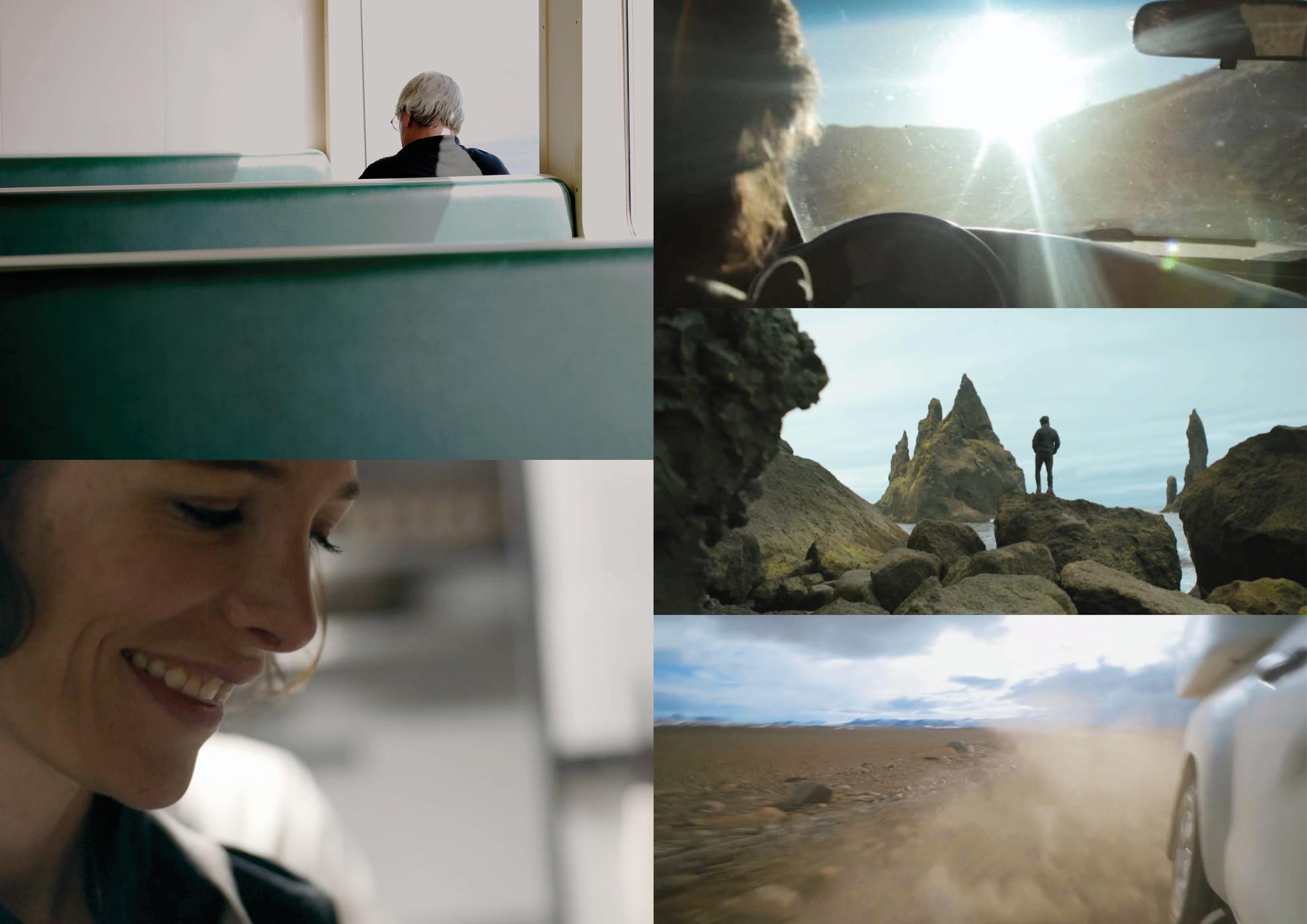
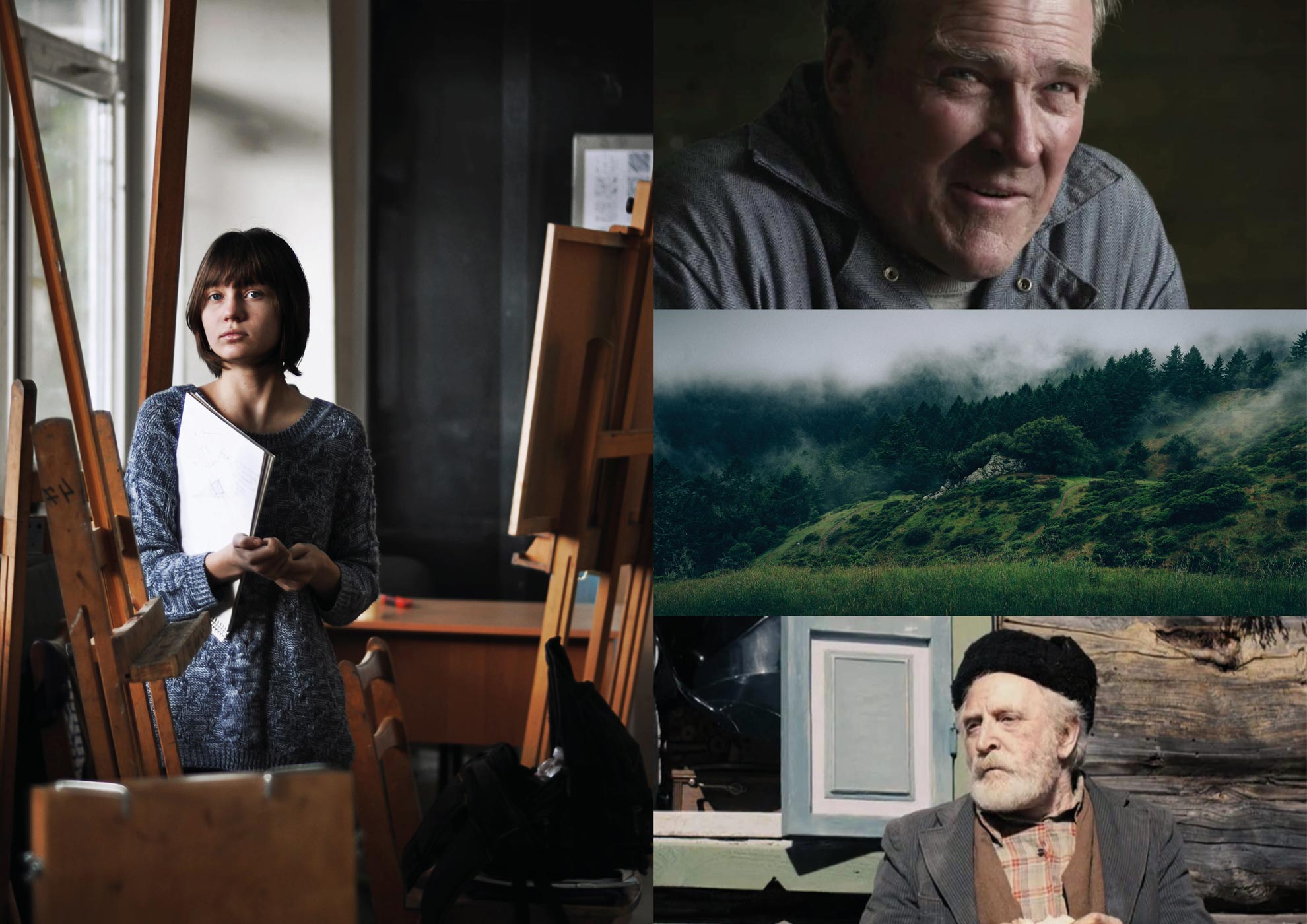
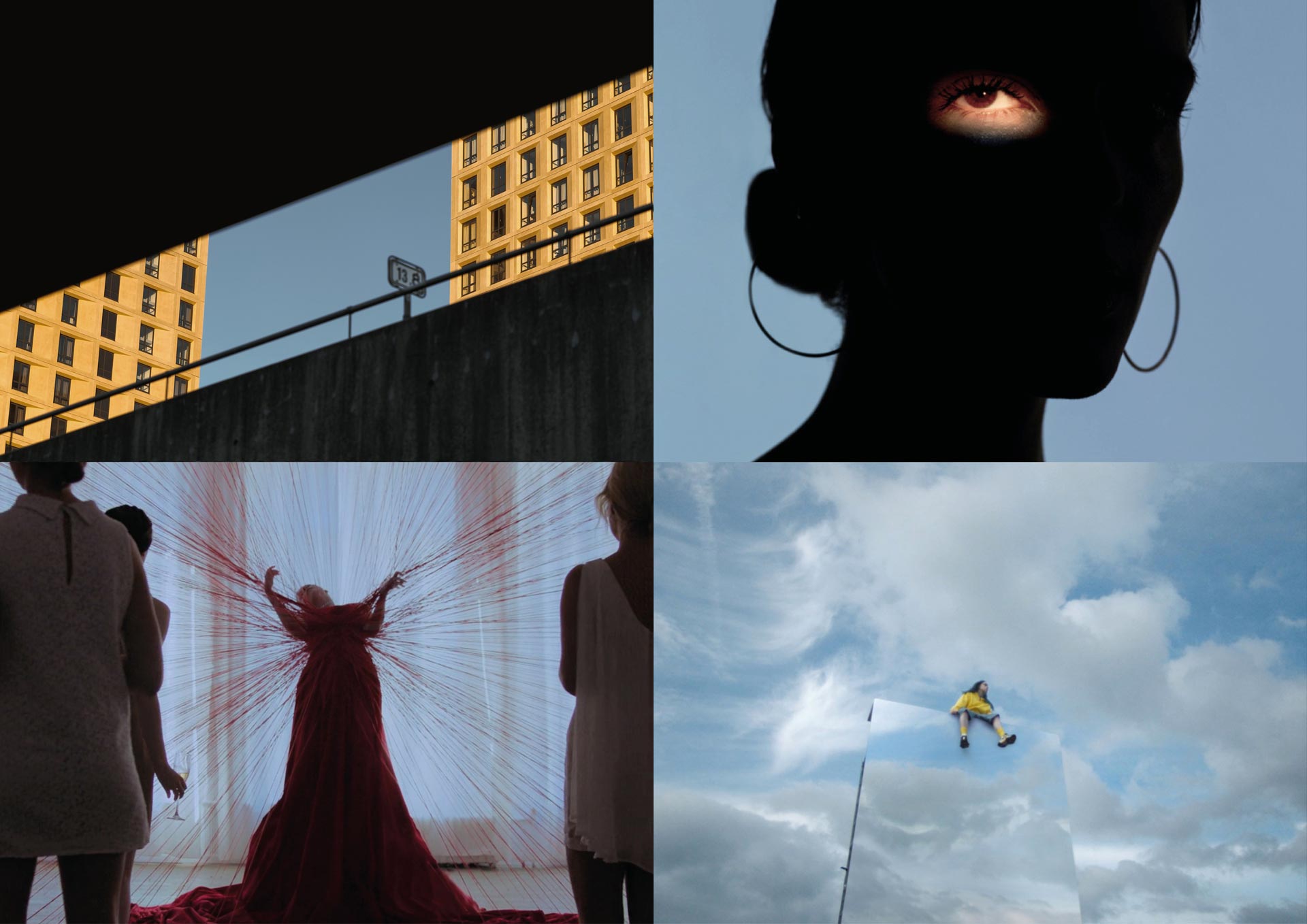
The montage
In the editing process I imagine them sitting all at one table and
talking with each other.
The legendary German documentary filmmaker Eberhard Fechner has interviewed many people from all social classes and constructed dialogs between them within the editing process.
For him it was less important to tell each individual story in a 100% correct way than to find the connections or contradictions within the stories in order to create a „(social) class photo“ of his protagonists. Sometimes a person started a sentence and a completely different person ended the sentence.
I want to use this Fechner-Style to connect all the selected stories, put them into a chronological narration and achieve the impression of ONE European life - lived by many different people at different places, with dark, bright and humorous sides - a life in war, peace and rage.
Life starts with our childhood and the teenage years. A time full of new experiences. It feels thrilling and frightening. Time seems endless and we can‘t wait for tomorrow. The 20’s and 30’s are full of wonderful and painful first times too. We find our way in life, take responsibility or run away from it, decide what kind of change we want to be in the world and face big obstacles on the way. In the 40’s and 50’s the first times are getting less. The stream of life seems to slow down. But it’s also a chance for new beginnings, to start with something nobody expects from us. And it’s time to accept death as a friendly reminder sitting on our shoulder. In our 60’s and 70’s we‘re considered ‚old‘. Life knocks less at our door and we find time to ask ourselves: What ‘first times’ are still missing? We are free to go, to try a new lifestyle and discover new versions of us. Maybe we lose our partner and have to create a new life from scratch. It’s also a time in which we reap the fruits of our labour. And a time to ask ourselves: Are we really the change we wanted to be?
We watch the children growing up and think about their first times and all the first times in our lives. All these moments and feelings are still there. We didn’t get older. We’re just getting more and all these states of us are preserved in us forever.
This is what an arc of life could look like, but what this particular European arc of life will look like is something we will discover on the journey..
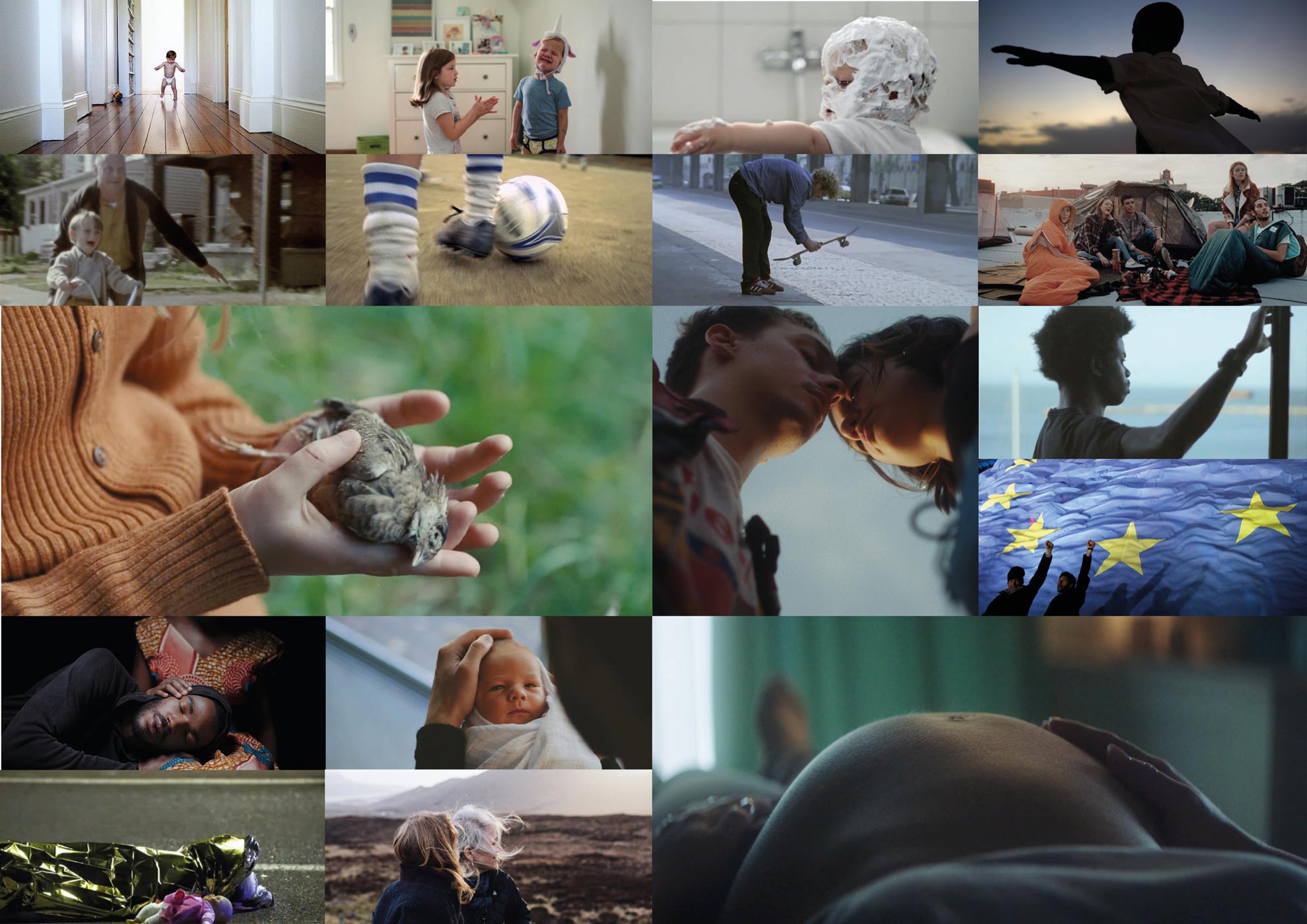
The makers

